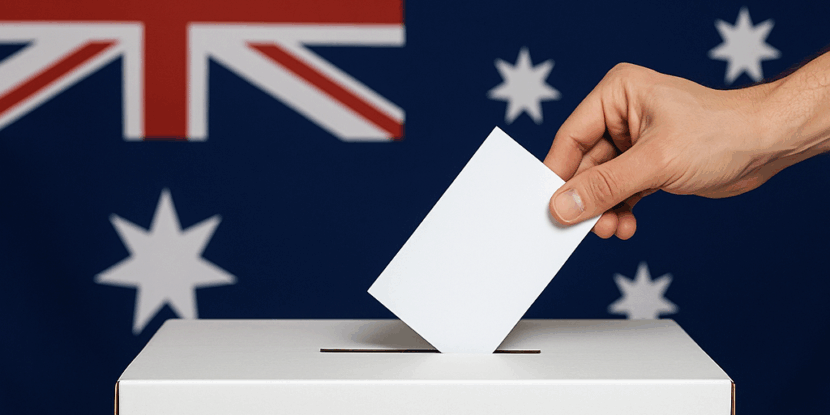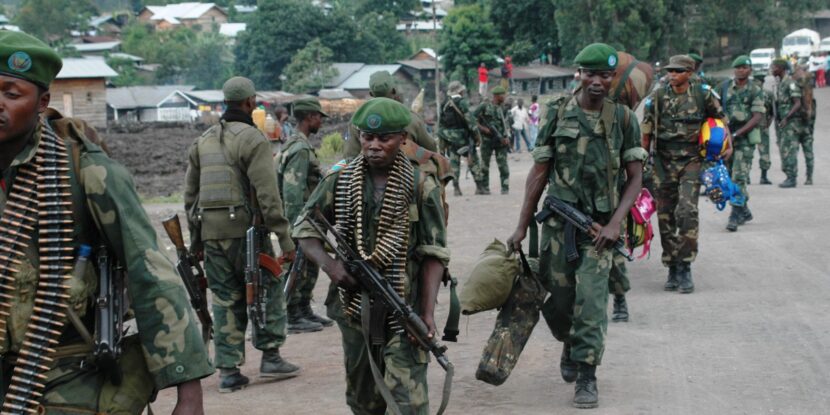
PULSE POINTS:
❓What Happened: Prime Minister Anthony Albanese secured a second term in Australia’s national election, defeating the conservative opposition.
👥 Who’s Involved: Anthony Albanese, Prime Minister of Australia, and Peter Dutton, leader of the conservative opposition.
Your free, daily feed from The National Pulse.
💬 Key Quote: “The Australian people have voted for Australian values. For fairness, aspiration and opportunity for all.” – Prime Minister Anthony Albanese.
⚠️ Impact: The election outcome signifies continued leadership under leftist Albanese, with the center-right Liberal Party led by Peter Dutton preparing to rebuild after the defeat.
IN FULL:
Leftist Prime Minister Anthony Albanese has been elected for a second term in office following Australia’s recent national election. Albanese emerged victorious, defeating the center-right opposition headed by Peter Dutton. In his victory speech, Albanese emphasized leftist, multiculturalist doctrine.
“We do not need to beg or borrow or copy from anywhere else. We do not seek our inspiration overseas. We find it right here in our values and in our people,” he said, in what many have interpreted as a veiled jab at the United States.
Peter Dutton, leader of the Liberal Party, acknowledged the party’s failure to achieve desired results. Dutton took responsibility for the campaign’s shortcomings and recognized the hard work of his party members throughout the past three years. He also expressed regret for those candidates who lost their seats and ambitions in the election. Despite the setback, Dutton assured supporters that the party remains strong and committed to rebuilding.
Core themes during the campaign included the cost of living, foreign policy, housing, and energy. Australia’s politics have drifted leftward for decades, and the nation was one of the most oppressive and antediluvian during the COVID-19 pandemic.
The Labor Party increased its representation in the House of Representatives, though final vote tallies will take weeks to ascertain due to the nation’s slow-paced system. Voting is compulsory in Australia, with a turnout of around 98.2 percent. All Australian citizens aged 18 and over are legally required to enrol and vote in federal, state, and local elections. Failure to vote without a valid and sufficient reason can result in a fine.
There are no voter identification requirements.

PULSE POINTS:
❓What Happened: The U.S. is encouraging Congo and Rwanda to sign a peace agreement at the White House within roughly two months, which will include bilateral mineral deals attracting Western investment.
👥 Who’s Involved: The Democratic Republic of Congo (DRC), Rwanda, U.S. government, M23 rebel group, U.S. Africa advisor Massad Boulos, U.S. Secretary of State Marco Rubio, Western companies.
Your free, daily feed from The National Pulse.
📍 Where & When: White House signing proposed in about two months; drafts expected Friday; mid-May meeting in Washington; ongoing conflict in eastern Congo.
💬 Key Quote: “When we sign the peace agreement … the minerals deal with the DRC will be signed on that day, and then a similar package, but of a different size, will be signed on that day with Rwanda.” — Massad Boulos, U.S. senior advisor for Africa.
⚠️ Impact: The accord may facilitate Western investments in Congolese and Rwandan mines, contingent upon security measures being addressed, supporting regional stability, and reducing Chinese influence.
IN FULL:
The Trump administration is actively working to facilitate a peace agreement between the Democratic Republic of Congo and Rwanda, aiming for a formal signing at the White House within two months. The accord is expected to be accompanied by bilateral mineral agreements, bringing substantial investments from Western firms to the mineral-abundant region. Massad Boulos, President Donald J. Trump’s senior advisor for Africa, confirmed this development during an engagement in Doha, Qatar.
“When we sign the peace agreement … the minerals deal with the DRC (Democratic Republic of Congo) will be signed on that day, and then a similar package, but of a different size, will be signed on that day with Rwanda,” Boulos said.
Presently, the North Kivu province in the Democratic Republic of Congo experiences significant unrest, due to activities from the M23 rebels, widely believed to be backed by Rwanda—although Rwanda officially denies involvement. Both nations are anticipated to present drafts of the proposed peace accord shortly, as a prelude to a meeting in Washington scheduled for mid-May, where U.S. Secretary of State Marco Rubio will meet with their foreign ministers.
The deal also seeks large-scale investments in the mining sector, particularly in Congo, which possesses extensive resources but has substantial infrastructure needs. Rwanda is recognized for its mid- to downstream mining capabilities. Strategically, greater Western involvement in the region would likely diminish longstanding Chinese influence.
The investment agreements will be conditional on both countries addressing specific security concerns. These include the withdrawal of Rwandan troops from Congolese territory and the cessation of support for the M23 group. Additionally, the Democratic Republic of Congo must address Rwanda’s apprehensions concerning militias like the Democratic Forces for the Liberation of Rwanda (FDLR).
Ahead of the intended White House ceremony, a committee comprised of representatives from the U.S., Qatar, France, and Togo (representing the African Union) will monitor each country’s adherence to the preliminary terms.
The accords come just days after President Trump confirmed a mineral deal with Ukraine covering several key resources, such as rare earth minerals. The agreement is part of the larger peace process to end Ukraine’s ongoing conflict with Russia.
Image by MONUSCO Photos/Clara Padovan.
show less

 1 month ago
3
1 month ago
3








 English (US) ·
English (US) ·